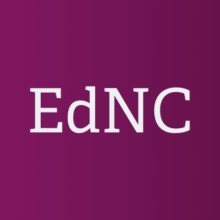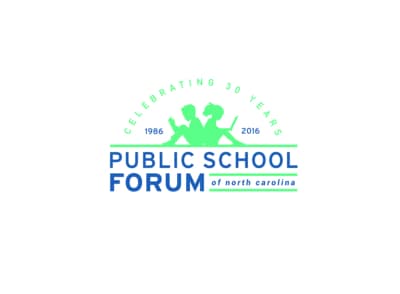We need your voice to tell the stories of the 58 community colleges across North Carolina.
In addition to the news we publish on EdNC, EducationNC also curates first-person perspectives from teachers, leaders, students, and other changemakers across the state. Perspectives are often our most popular pieces of content sharing personal points of view, anecdotes, or narratives — similar to an op-ed.
Here are a few prompts to get your gears started, but we will consider perspectives written on any topic.
Prompts for faculty:
- What led you to become a staff/faculty member at your community college?
- What are the biggest opportunities and challenges facing your campus?
- Think of something (a student, a program, a place) on your campus that you think more people should know about. Share that story with us.
Prompts for students:
- What was your path to community college? What do you plan to do afterwards?
- What is the biggest challenge(s) you have faced as a community college student? How have you overcome that challenge(s)?
- What will you remember most from your community college experience?
- What does a typical day look like for you?
Great, you’ve decided to write a perspective for EdNC. Now what?
Perspectives are typically 700-1000 words in length and may be submitted as a Word Document directly via email to Analisa Sorrells at asorrells@ednc.org.
In addition to the perspective:
- Include any horizontal photos that you want within the article. These photos can be of your community college, your work in action, or others you mention in the article. iPhone photos are fine! Don’t forget to include a photo credit and a brief caption. If you photo includes a minor, please make sure you have all necessary permissions.
- Include a two or three sentence bio about yourself.
- Include a headshot of yourself.
A few pieces of advice on writing for EducationNC:
- Don’t make it complicated. The best writing is simple. I encourage writers to “tell it like you’d tell your mama.” A conversational, accessible style works best. Start with a concrete example or narrative before moving to policies/big ideas.
- Be authentic. You are the world’s leading expert on your college, your school, your classroom, your students, your peers, or your job. Use your own voice. You don’t need to take on an “expert tone” because you are the expert.
- Stuck? Ask yourself: What is the one thing you wish the world knew about your community college? If you had 5 minutes with your community college president or a legislator what would you ask or tell them?
- Tell a story. A personal anecdote is one of the best ways to illustrate an idea. Give examples to support your assertions.
- A picture is worth a thousand words.
- Read it out loud. Read your final work out loud several times. You may “hear” it differently than you wrote it. Reading out loud is one of the best ways to edit.
For some recent examples of highly read perspectives follow the links below:
Taking people from where they are and carrying them as far as they can go
From Kinston to Salisbury: A full-circle community college experience



